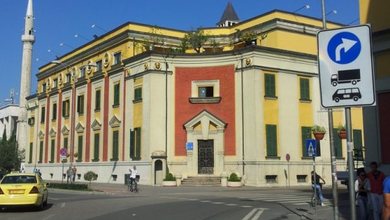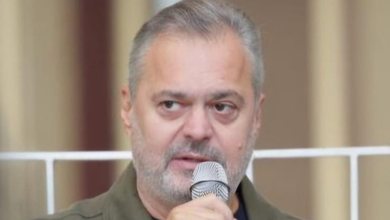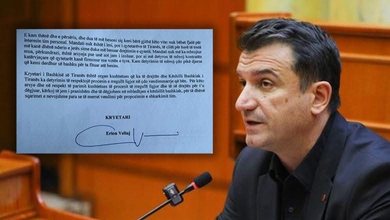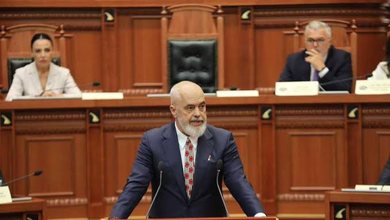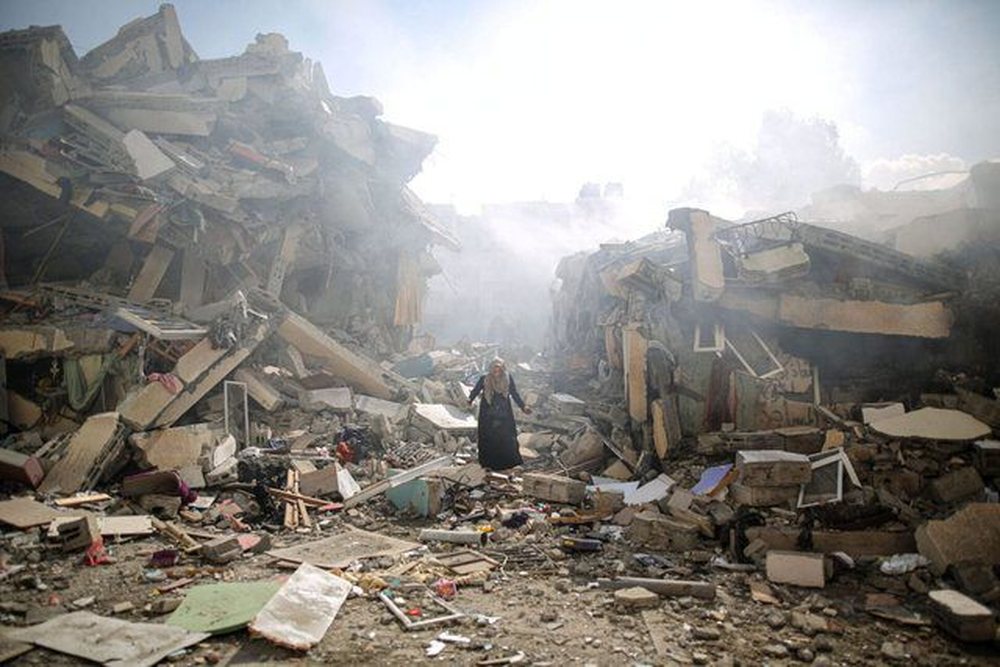
By Bjorn Runa
In public debate, there is a rhetorical trick, known in English as “what-about-ism,” which works by diverting attention from an actual accusation to another problem: when someone makes a criticism, the subsequent reaction is not clarification, but the immediate question “what about this other injustice why don’t you speak up?” or “why don’t you protest about this too?” The essence of such a trick is not to engage in debate, but to relativize the initial concern, in an attempt to make it sound meaningless, simply because it is not followed by an endless list of criticisms and protests against every evil that happens around us.
This is a mechanism that has been appearing for some time, now with a disturbing cynicism, from public figures, journalists and essentially opinion makers in the Albanian public space, whenever the genocide in Gaza is commented on. Such rhetorical tricks are generally invoked when faced with great pressure to justify the unjustifiable, but what impresses us is the fact that in most cases, none of them has been put under such great pressure to comment on what is happening in Gaza.
In fact, it is a topic that, although it receives the most attention from the international media – as it should naturally with a genocide that is broadcast live 24/7 and yet the world is silent – in most Albanian media it unfortunately occupies a less important place. However, among a considerable number of public figures there seems to be a thirst to voluntarily intervene in the discussion, seeing things almost always within the same framework. Thus, solidarity protests are labeled as hypocrisy, as long as there is no identical protest regarding another cause; The repeated blocking of volunteer activists' attempts to send aid to Gaza via sea routes is ignored as long as similar efforts are not made to send aid to other countries facing blockades or severe sanctions from the West (ironically, no one asks why blockades are imposed that prevent the supply of food or medicine to these countries, when it is known that such sanctions affect the poorest segments of the population and not the political leaders whom the sanctions are intended to harm). Meanwhile, the activists of the "Global Sumud" fleet are usually described as left-wing extremists, or tourists sailing around the Mediterranean drinking beer or smoking weed, as if this makes their efforts to break an inhumane blockade worthless. All of these are presented to us on screens and in newspaper articles as "critical views," when in reality they are nothing more than distraction strategies, designed to prevent anger over a particular issue from ever lasting long enough to become relevant.
“What-about-ism” goes beyond distorting an argument. It creates the conditions for distracting attention from the problem, turning every protest into a matter of balance (if you hadn’t protested about something else, then the current protest would have been irrelevant). At the same time, it traps the public in an endless cycle of anger, never giving them enough time to demand accountability for the evil that is happening before their eyes. Then, when you see that the same climate of distraction is reinforced by sponsorships of cultural activities and tourist spectacles that cleanse the country’s image, themselves bearing the imprint of a series of Zionist institutions, then it begins to become clearer that we are not dealing with just an attempt to change the course of the debate, but with an attempt to shape the very terrain where this debate is possible.



